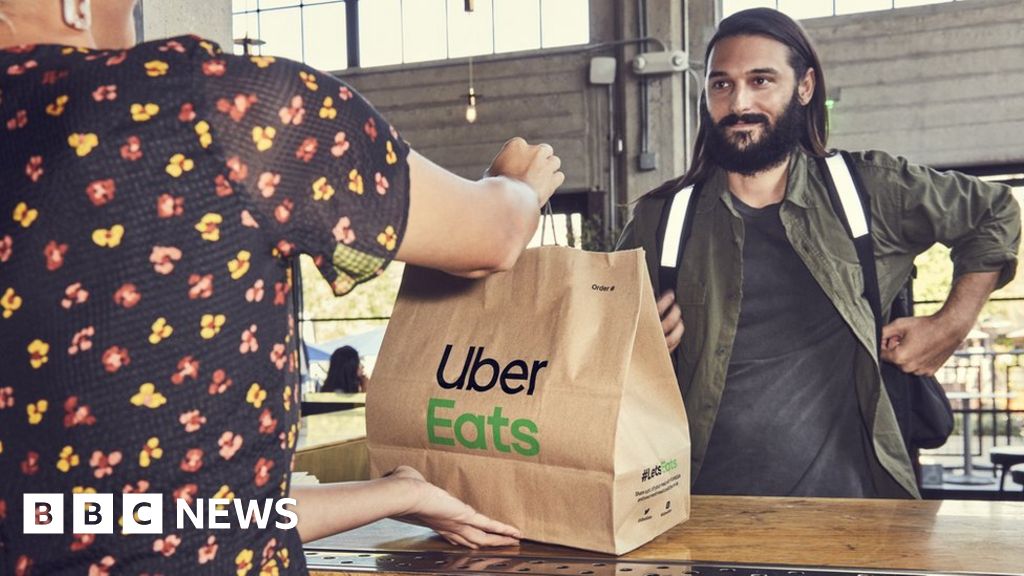US Court Rules Uber And Lyft Workers Are Contractors

A US court has ruled that "gig" economy giants including Uber and Lyft can continue treating their workers as independent contractors in the state of California.
The California appeals court found that a labour measure, known as Proposition 22, was largely constitutional.
Labour groups and some workers had opposed the measure, saying it robbed them of rights like sick leave.
The firms say the proposition protects other benefits such as flexibility.
The latest ruling overturns a decision made by a lower court in California in 2021, which found that Proposition 22 affected lawmakers' powers to set standards at the workplace.
The state of California and a group representing Uber, Lyft and other firms appealed against the decision.
On Monday, a three-judge panel at the appeals court ruled that workers could be treated as independent contractors. However it removed a clause, which put restrictions on collective bargaining by workers, from Proposition 22.
Shares in Uber and Lyft were almost 5% higher in after-hours trading.
"Today's ruling is a victory for app-based workers and millions of Californians who voted for Prop 22," Tony West, chief legal officer at Uber said.
"We're pleased that the court respected the will of the people and that Prop 22 will remain in place, preserving independence for drivers," Mr West added.
Lyft said that the proposition "protects the independence drivers value and gives them new, historic benefits."
The Service Employees International Union, which challenged the constitutionality of Proposition 22 with several drivers, said it was considering appealing against the court's decision.
In November 2020, voters in California passed Proposition 22 that allowed freelance workers to be classified as independent contractors.
It was a victory for Uber and Lyft which run a $205m (£168.7m) campaign to support the measure.
However, the win came with some concessions and companies were required to offer workers some benefits, including healthcare and accident insurance.
Some drivers had backed Proposition 22 but other drivers and labour groups opposed it, pointing out all the benefits of being classified as employees including sick days, leave and overtime pay.
Tens of millions of people work in the global gig economy across services like food delivery and transport.
Gig workers are paid for individual tasks, such as a food delivery or a car journey, rather than getting a regular wage.
Most US federal and state labour laws, such as those requiring a minimum wage or overtime pay, do not apply to gig workers.
Firms like Uber and Lyft have come under increased scrutiny as the industry grows in size.
From Chip War To Cloud War: The Next Frontier In Global Tech Competition
The global chip war, characterized by intense competition among nations and corporations for supremacy in semiconductor ... Read more
The High Stakes Of Tech Regulation: Security Risks And Market Dynamics
The influence of tech giants in the global economy continues to grow, raising crucial questions about how to balance sec... Read more
The Tyranny Of Instagram Interiors: Why It's Time To Break Free From Algorithm-Driven Aesthetics
Instagram has become a dominant force in shaping interior design trends, offering a seemingly endless stream of inspirat... Read more
The Data Crunch In AI: Strategies For Sustainability
Exploring solutions to the imminent exhaustion of internet data for AI training.As the artificial intelligence (AI) indu... Read more
Google Abandons Four-Year Effort To Remove Cookies From Chrome Browser
After four years of dedicated effort, Google has decided to abandon its plan to remove third-party cookies from its Chro... Read more
LinkedIn Embraces AI And Gamification To Drive User Engagement And Revenue
In an effort to tackle slowing revenue growth and enhance user engagement, LinkedIn is turning to artificial intelligenc... Read more

